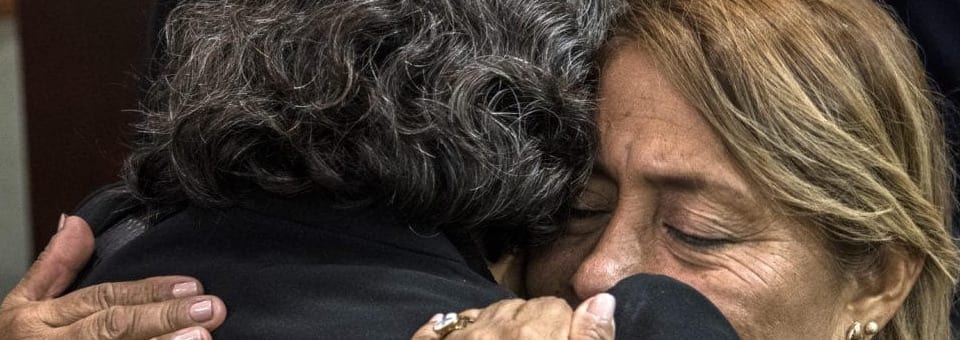Groundbreaking Case at Inter-American Court on Human Rights Could Transform Girl’s Rights Across Latin America and Beyond
Case would establish International Standards to protect girls from coercion and sexual violence in schools
San José- Guayaquil-New York, (PRESS RELEASE)Today, the Center for Reproductive Rights and its local partner, the Centro Ecuatoriano para la Acción y Promoción de la Mujer (CEPAM)- Guayaquil presented the case Paola Guzmán Albarracín v. Ecuador at a hearing before the Inter-American Court on Human Rights in San Jose, Costa Rica. This is the first time the Inter-American Court hears a case of sexual violence against girls in a school setting.
Paola Guzmán Albarracín was an Ecuadorian teenager who was sexually abused by her school’s vice-principal. At age 15, she found out that she was pregnant. The vice-principal solicited Paola to get an abortion in the school’s medical service but the school doctor told her he would only perform the procedure if she had sex with him. In desperation, Paola ingested white phosphorus and told her classmates on her way to school who in turn informed the school authorities. The school, instead of getting immediate medical help for her, asked her to pray for her soul and ask God for forgiveness. Her classmates where only allowed to contact Paola’s mother hours later. Paola’s mother took her to the hospital, but the doctors were not able to save her. She died on Diciembre 13, 2002 at the age of 16.
The Center for Reproductive Rights took the case and first filed before the Inter-American Commission on Human Rights in September 2006 to hold the Ecuadorian State accountable for its failure to follow through with any legal action against the perpetrators; for its failure to address sexual violence in schools; and to ensure access to justice for sexual assault survivors in the future.
“All I want is to get justice for my daughter, I want the State of Ecuador to restore Paola’s name and dignity” said Petita Albarracin, Paola’s mother.
“The Center continues to use the power of the law to ensure that women and girls’ fundamental human rights are recognized and respected around the world” said Nancy Northup, president and CEO of the Center for Reproductive Rights. “We are fighting to bring reparations to Paola’s family, but the outcome of this case will also have groundbreaking impacts for thousands of girls all over Latin America and beyond who face sexual violence at school and who have no access to sexual and reproductive health rights and services.”
Today’s testimony by Petita Albarracín, the lawyers, the many experts, and the Inter-American Commission on Human Rights called upon the Court to recognize that autonomy and consent are vital to sexual and reproductive rights, and to acknowledge that consent can be violated by strong power and age disparities between the victim and the aggressor.
“If successful, the case will also establish international standards that governments in Latin America must comply with to guarantee girls’ and adolescents’ rights in school, to protect them from coercion and sexual violence” said Catalina Martinez Coral, Regional Director for Latin American and Caribbean at the Center for Reproductive Rights. “Paola Guzmán’s case will allow the Inter-American Court on Human Rights to decide on the rights that all women have to autonomy and how this autonomy is the fundamental pillar of our sexual and reproductive rights.”
Data from the Ecuadorian Family Relations and Gender-Based Violence Survey indicates that 32.7% of all women in Ecuador have suffered sexual violence at least once in their lives. According to UNICEF, in Latin America 1.1 million adolescents between the age of 15 and 19 have experienced sexual violence, and 3 out of 10 students between the age of 13 and 15 have experienced sexual harassment in a school environment.
“Paola Guzmán’s case will make Ecuador to be accountable of its international responsibilities on human rights, will make it evaluate its current policies to implement structural changes to prevent, eradicate and sanction harassment and abuse, and implement improvement to guarantee that all girls can go to school in safe conditions and that are heard on all decisions that affect their bodies and their lives”, said Lita Martínez, director of CEPAM-Guayaquil.
XXX

